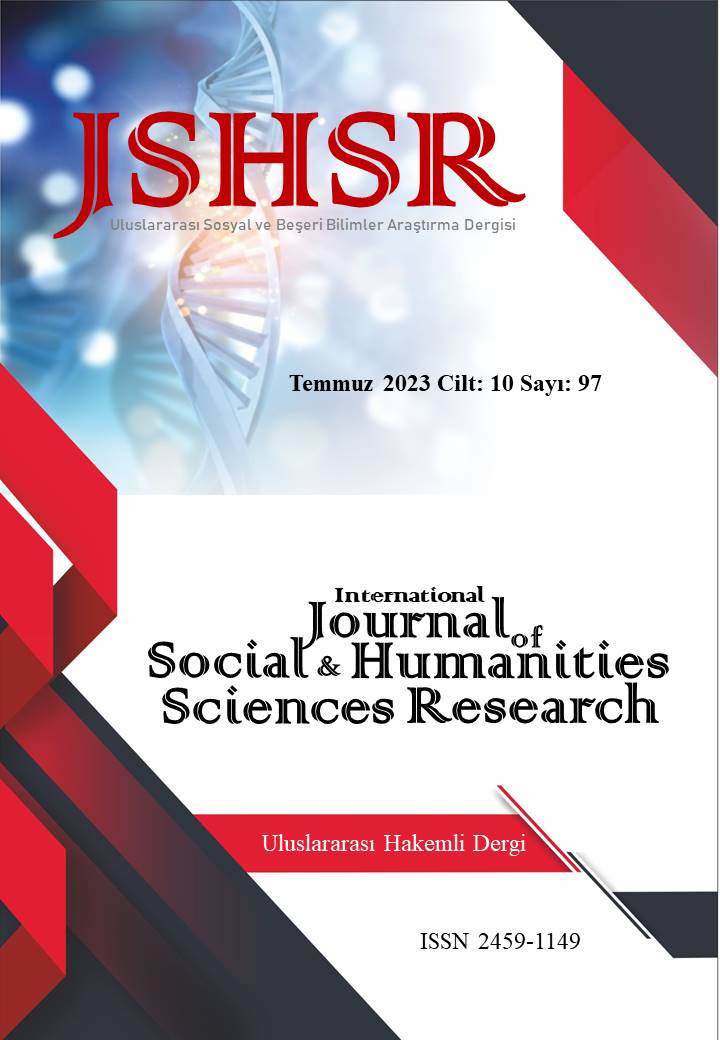The Problems Faced by School Principals After the 6 February Kahramanmaraş Earthquake and The Suggestions for Solutions for These Problems
DOI:
https://doi.org/10.5281/zenodo.8200750Keywords:
Earthquake, School, School Principal, Problem, SolutionAbstract
For this purpose, it is to learn the problems faced by school principals after the 6 February Kahramanmaraş earthquake, the solutions to these results and their predictions for disasters at school. At the end of the research, meetings were held with 20 school principals, including primary, secondary and high schools, in Gaziantep, one of the provinces that experienced the earthquake severely. In the research, “Semi-Structured Interview Form” was used, after an earthquake, the magnitude of which was achieved, all of them showed serious success in absenteeism difficulties, the dreams of the students who came to the school fell, the students experienced fear and sadness, they were seriously affected by the earthquake, the students moved to other cities, the students at the school were transferred. where a large number of new students come to school by transfer. In the research, it is seen that all school principals focus on psychosocial behaviors, general extracurricular social activities regarding the explanations in the school, and the transactions related to the students who do not come to school are realized. It is also seen that the operations related to the operation period for the children who are deficient in material due to the earthquake, and the provision of the entire service left in the greenhouse or other places due to the earthquake are also carried out. In the research, the subject of the administration of the school principals is the arrangement in which the personnel house is managed after such disasters. School principals suggest that distance education centers should be removed, students should be easily transported after disasters such as earthquakes, natural disaster lessons should be sent, schools should be made resistant to earthquakes and their psychosocial evacuation should be done.
References
Afad (2023). www.afad.gov.tr
Aktaş, A. M. (2003). Kriz Durumlarında Sosyal Hizmet Müdahalesi. Kriz Dergisi, 11(3), 37-44
Akman, P. ve Altınel, G. (2012). Van Depremi Psikososyal Destek Çalışmaları Sonuç Raporu [24 Ekim 2011- 09 Mart 2012], Afetlerde Psikososyal Hizmetler Birliği, Van.
Büyüköztürk, Ş., Çakmak, E. K., Akgün, Ö. E., Karadeniz, Ş. Ve Demirel, F. (2008). Bilimsel Araştırma Yöntemleri (2. Baskı). Pegem Akademi.
Demirkaya, H. (2007). İlköğretim 5. 6. ve 7. sınıf öğrencilerinin depreme yönelik tutumlarının çeşitli değişkenlere göre incelenmesi. Türkiye Sosyal Araştırmalar Dergisi, 3, 37-49.
Du, B., Ma, X., Ou, X., Jin, Y., Ren, P. & Li, J. (2018). The prevalence of posttraumatic stress in adolescents eight years after the Wenchuan earthquake. Psychiatry Res. 1,262.
Güler, Ç. Ve Çobanoğlu, Z. (1994). Afetler. Türkiye Cumhuriyeti Sağlık Bakanlığı Çevre Sağlığı Temel Kaynak Dizisi.
Kadıoğlu, M. (2011). Afet Yönetimi Beklenilmeyeni Beklemek, En Kötüsünü Yönetmek. T.C. Marmara Belediyeler Birliği Yayını.
Karabulut, D. ve Bekler T. (2023). Doğal Afetlerin Çocuklar ve Ergenler Üzerindeki Etkileri. Doğal Afetler ve Çevre Dergisi, 5(2),1–3.
Kızılay (2008). Afetlerde Psikososyal Uygulama Rehberi. Kızılay Yayınları.
MEB/ UNICEF. (2001). Psikososyal okul projesi. Türkiye, travma sonrası normal tepkiler, Psikoeğitim uygulama el kitabı. MEB Yayınevi.
Silwal, S., Dybdahl, R., Chudal, R., Sourander, A., Lien, L. (2018). Psychiatric symptoms experienced by adolescents in Nepal following the 2015 earthquakes. J Affect Disord.
Solmaz, G., ve Özel, A. (2012). Türkiye’de Deprem Tekrarlanma Zamanının Tahmini ve Neotektonik Bölgelere Göre Depremselliğin Markov Zinciri ile İncelenmesi. Cankaya University Journal of Science and Engineering, 9 (2), 20-27.
Subaşı, M. ve Okumuş, K. (2017). Bir Araştırma Yöntemi Olarak Durum Çalışması. Atatürk Üniversitesi Sosyal Bilimler Enstitüsü Dergisi, 21(2), 419-426.
Şahin, C. ve Sipahioğlu Ş. (2003). Doğal Afetler ve Türkiye. (2. Baskı). Gündüz Eğitim ve Yayıncılık.
Utkucu, M., Durmuş, H., Uzunca, F. & Nalbant, S. (2023). 6 Şubat 2023 Gaziantep (Mw=7.7) ve Elbistan (Mw=7.5) Depremleri Üzerine Bir Değerlendirme. Sakarya Üniversitesi. http://www.aym.sakarya.edu.tr/2023/02/07/6-subat-2023-gaziantep-mw7-7-ve-elbistan-mw7-5-depremleri-uzerine-bir-degerlendirme/
Yıldız, M. (2000). İlköğretim okullarındaki öğretmenlerin deprem öncesinde ve deprem sonrası öğrenme ve öğretme başarıları ile deprem sonrası oluşabilecek değişiklikler. [Yayımlanmamış Yüksek Lisans Tezi], Marmara Üniversitesi, İstanbul.
Downloads
Published
How to Cite
Issue
Section
License
Copyright (c) 2023 INTERNATIONAL JOURNAL OF SOCIAL HUMANITIES SCIENCES RESEARCH

This work is licensed under a Creative Commons Attribution 4.0 International License.


